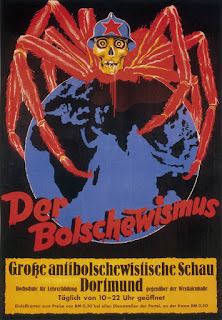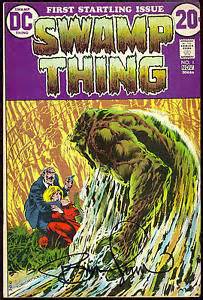My point is, the search for images leads to interesting discoveries. I thought I'd share some of the more unusual ones with you. They are not only oddities, but they might also give you an insight into the book I'm writing (no name, as of yet).
Here is a painting of Mary and Jesus. Gaze at it for a moment, and let me know what you think:
Yes, the blonde-haired Jesus is a little odd, but not too much so considering Europe's bias in favor of a European Jesus. But the artist of this particular one is Adolph Hitler. As I don't consider myself a student of art, I'm unable to give an intelligent opinion of the work, but I'd appreciate any comments.
The rise of Hitler was a gradual one, having its roots in the first World War. Germany was a defeated nation, a people that had spilled the young men onto the battlefield only to have them returned old in spirit and infirm in body. Postwar Germany, like other nations, had to adapt to millions of men who were bearing the scars of war. Below are shown the many attachments available to those who lost a hand or hands in the war. Not pictured are the spoon and fork attachments that helped amputees in the simple task of eating.
The reparations demanded by England and France for their losses in the war were more than Germany could cope with. Desperate to continue to make payments while keeping their economy afloat, The Weimar Republic did what so many others have done: they printed more money, devaluing their currency in order to delay for a time dealing what were impossible demands. What began as an unwise response quickly spiraled into an insane situation, as inflation hit the Germans in a way it never has anywhere before or since.
Money became so useless people used it as wallpaper and even fuel for the fire. Rather than saving, people rushed to spend their money as soon as they were paid before it became useless. Seeing no future, people began to live for the moment. They spent their money on cocaine and drinks at strip bars. People who had saved their whole lives found they had nothing, while those who spent recklessly discovered their debts easily forgiven.
\
Hitler believed that since he was a symbol to the German nation, that he was married to the German nation, and thus never married his longtime love interest, Eva Braun. She was always kept in the background, never mentioned and only incidentally photographed. This photograph being a rather unusual exception. Here we see Eva Braun in black face. Given the extreme racial policies of the time, this seems almost a harmless bit of fun by comparison. Yes, it expresses ignorance, but it does not demonstrate the willful hatred her beloved showed for virtually every ethnicity that was not Germanic. It was more an imitation of what Al Jolson and others in America were doing.
Here's the Eva Braun who caught Hitler's eye:
Hitler eventually did marry Eva Braun, but not until their very last day alive. Hiding in their bunker, the Soviets bombarding Berlin, Eva Braun and Adolph Hitler were married underground, only to commit suicide a short time after.
Nothing says Christmas so much as eggnog, sharing presents, and swastikas. When the Nazis came to power, everything was co-opted. Everything needed to reflect the ideals of the Third Reich. Nothing was sacred except the party and its leader:
A couple of propaganda posters, basically saying that Jews and communists will destroy the world if you do not support Hitler's fight against them. Yes, it's propaganda and evil propaganda at that, but you can see how it could be effective.
Just want to give some idea of the size of the rallies that took place during the Nazi era. It must have felt wonderful to be part of a crowd so large and so uniform. Deep within all of us is a desire to belong to something larger. This is actually a very beautiful thing, but it unfortunately can be manipulated into becoming a very bad thing.
















